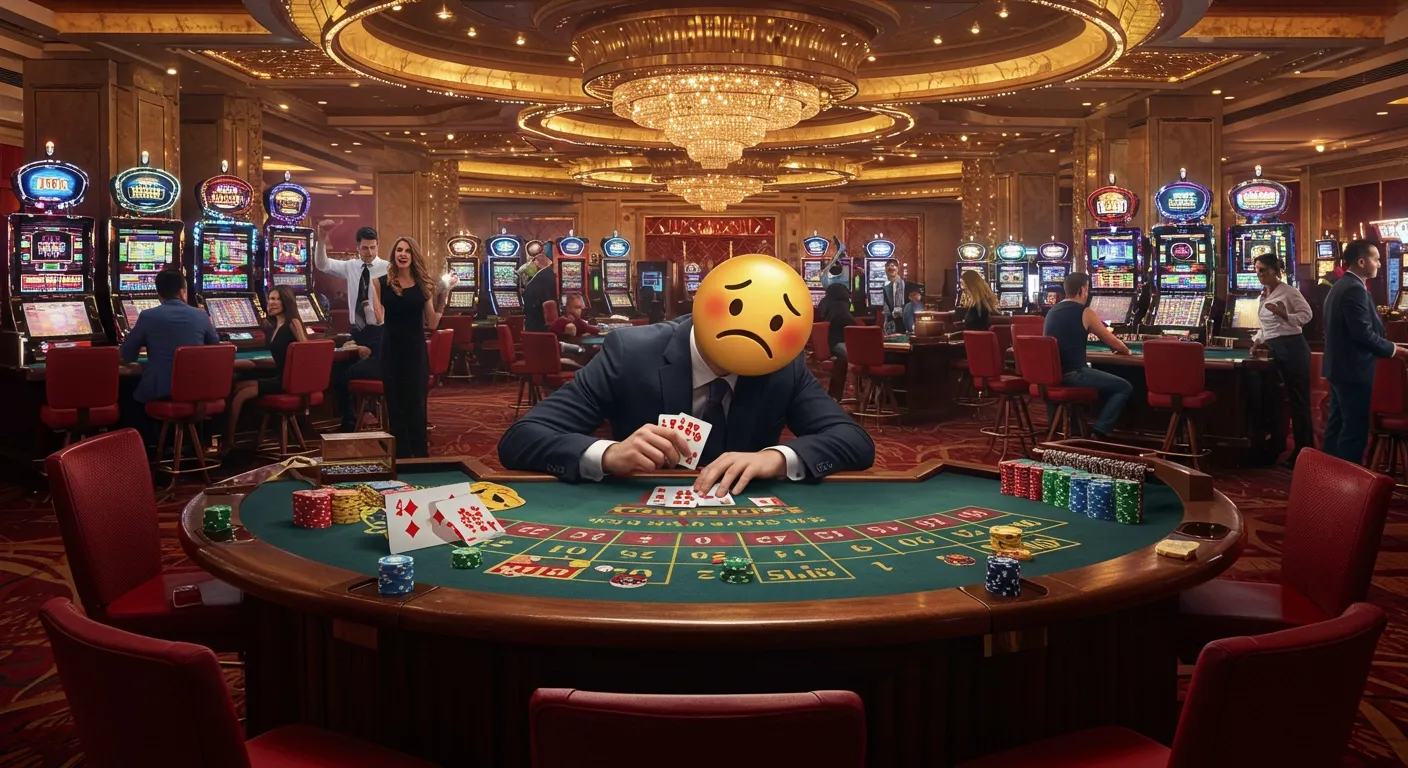Every bettor has faced that frustrating moment — you’ve done the research, followed the stats, even gone with your gut, and yet somehow, the bet doesn’t land. It’s not just bad luck; sometimes it feels like the odds are cursed. The truth is, betting isn’t purely about chance. It’s a mix of psychology, data, timing, and discipline. Understanding why some bets always seem to fail can help you shift from emotional gambling to strategic betting, which ultimately gives you a better edge over the long run.
Many bettors make the same subtle mistakes repeatedly — errors in judgment, emotion-driven decisions, or overconfidence in patterns that don’t exist. If you’ve ever wondered why you can’t seem to break even or why those “sure things” always fall apart, it’s time to look beneath the surface.
The Psychology Behind Losing Bets
Let’s start with the most common and underestimated reason: human psychology. Betting taps into our cognitive biases — the mental shortcuts and emotional triggers that influence how we make decisions. The brain loves patterns and stories. When you win once by backing a certain team, your mind automatically starts linking that team to success, even when logic says otherwise.
One of the biggest psychological traps is confirmation bias — we tend to focus on information that supports our existing beliefs. For example, you might convince yourself a football team “always performs better on weekends” because you remember the times they won, forgetting the times they lost. Another bias, called the gambler’s fallacy, tricks you into thinking a loss streak must end soon or a win streak will continue forever. But betting outcomes don’t have memory; every event is statistically independent, especially in games of chance.
Misreading the Odds and Value
Odds aren’t just numbers — they’re representations of probability and implied risk. Many bettors lose because they misunderstand what the odds actually mean. A 2/1 bet doesn’t mean you’re “likely” to win; it means the bookmaker believes you have about a 33% chance.
The key is identifying value, not just backing the favorite. Value betting means finding odds that underestimate an event’s true probability. For instance, if you believe a tennis player has a 50% chance of winning but the bookmaker’s odds imply only 40%, that’s a value bet. Most casual punters never think in these terms; they bet on emotion or intuition. Over time, this lack of understanding erodes their bankrolls.
The Role of UK Betting Sites and Market Behavior
To understand why some bets fail, it’s worth examining how modern betting platforms operate. Many players use lists of licensed operators to find competitive odds or new bonuses. If you check any uk betting sites list, you’ll see dozens of platforms claiming to offer the best experience, but each one has its own algorithms and pricing models.
Bookmakers adjust odds not only based on statistics but also on public sentiment. If a large number of bettors start backing one outcome, the odds will shorten to balance exposure. This creates an illusion of “smart money” — as if the crowd knows something special. In reality, it’s often just hype. Betting markets are like mini stock exchanges; prices fluctuate with emotion as much as with data. That’s why blindly following popular picks or “hot tips” usually leads to disappointment.
Smart bettors treat odds movement as information rather than instruction. They look for inconsistencies between markets, delays in updates, or mispriced lines in less popular sports. That’s where opportunities often lie.
The Impact of Overconfidence and Chasing Losses
One of the most common patterns among unsuccessful bettors is overconfidence. After a few wins, it’s easy to believe you’ve cracked the system. Suddenly, bets get larger, riskier, and less logical. Instead of analyzing carefully, players start betting based on emotion or ego. The market punishes that kind of behavior ruthlessly.
Equally dangerous is chasing losses — trying to win back what you lost by doubling down or making impulsive bets. This behavior transforms betting from entertainment into emotional firefighting. The problem is, when you’re frustrated, your judgment gets clouded. The focus shifts from making smart predictions to simply recovering money. It’s one of the fastest ways to lose your bankroll.
Even seasoned bettors fall into this trap occasionally. The best way to avoid it is to set strict betting limits and detach emotionally from outcomes. Remember: discipline, not luck, separates consistent winners from constant losers.
The Hidden Influence of Small Sample Sizes
Another subtle reason some bets seem cursed is the misunderstanding of sample size. A few wins or losses don’t define a long-term pattern. Sports betting and casino odds are designed around large numbers — only when you look at hundreds or thousands of outcomes do true probabilities reveal themselves.
If you bet ten times and lose eight, that doesn’t mean you’re “unlucky.” It might simply be variance — natural statistical fluctuation. Many bettors give up or change strategies too quickly because they can’t handle short-term losses. They switch systems, follow new tipsters, or join betting groups every week, constantly chasing the next “winning method.” This constant change prevents long-term learning. The truth is, even the best professional bettors win only around 55–60% of the time, but their consistency and bankroll management make that margin profitable.
Emotional Triggers and Impulse Decisions
Have you ever noticed that your worst bets often happen after a stressful day or a heated game? That’s no coincidence. Emotional states heavily influence decision-making. When you’re angry, tired, or excited, your brain shifts from analytical to instinctive mode. This is known as emotional betting, and it’s one of the quiet killers of bankrolls.
It’s why smart bettors take breaks after losses or step away during emotional highs. They know that a calm mind is their best asset. Even betting while consuming alcohol or watching a live match can distort perception and lead to poor calls. If you want to know why some of your bets always seem to fail, start by observing when you place them — not just what you’re betting on.
Following Tips and Trends Blindly
In today’s digital age, betting tips are everywhere — social media, YouTube, Telegram groups, and forums. While some experts genuinely analyze data, many so-called “tipsters” are motivated by referral commissions or affiliate bonuses, not accuracy. Blindly following tips from random online sources is one of the fastest ways to lose consistently.
Even if a tipster has a good track record, their success might depend on specific timing, markets, or stake sizes that you can’t replicate. What works for one bettor may fail for another due to variance or delayed odds movement. The smarter approach is to use tips as insights, not instructions — cross-check their logic, compare odds across platforms, and trust your own research.
Poor Bankroll Management
You can have the best predictions in the world, but without proper bankroll management, success won’t last. Many bettors stake too much of their total funds on single bets — often 20% or more. Professionals rarely risk over 2–5% per wager. This structure allows them to survive losing streaks without panic.
When you stake too high, every loss feels catastrophic, and emotion takes over. Eventually, that emotional pressure leads to reckless recovery bets. Betting isn’t just about picking winners; it’s about managing risk and surviving variance. It’s better to win steadily over months than to burn out chasing instant results.
Luck vs. Skill: The Ongoing Debate
No matter how skilled you are, luck will always play a role. Sports can be unpredictable — a referee’s decision, a last-minute goal, or weather conditions can change everything. Even in games like poker, where skill dominates, short-term luck still influences outcomes.
The goal is not to eliminate luck but to manage it. Skilled bettors think long-term, focusing on probabilities and strategy instead of short-term results. They accept that losses are part of the process and view them as data points, not disasters. When you stop seeing every bet as a must-win event, you start making clearer, smarter choices.
How to Turn Failing Bets into Learning Opportunities
Every losing bet teaches something — about the market, your emotions, or your strategy. Instead of labeling it as bad luck, analyze why it failed. Was the logic sound? Did emotions interfere? Were the odds truly in your favor? Keeping a betting journal, even a simple one, helps identify repeating mistakes. Over time, patterns emerge — and those patterns are your roadmap to improvement.
The most successful bettors aren’t the luckiest or even the smartest; they’re the most self-aware. They understand their biases, control their impulses, and constantly adapt. Betting isn’t about perfection — it’s about patience and learning.
Final Thoughts: Why Some Bets Keep Failing
So, why do some bets always seem to fail? Because betting isn’t a game of guessing — it’s a game of discipline. Most losses come from psychological errors, poor bankroll control, or emotional decision-making rather than pure bad luck. The odds are fair; it’s our approach that often isn’t.
When you treat betting as a marathon instead of a sprint, you start noticing a shift. Your bets become less impulsive, your losses more tolerable, and your wins more consistent. Whether you’re exploring a new bookmaker from a uk betting sites list or sticking with your favorite platform, remember this: success in betting is less about chasing luck and more about mastering yourself.



